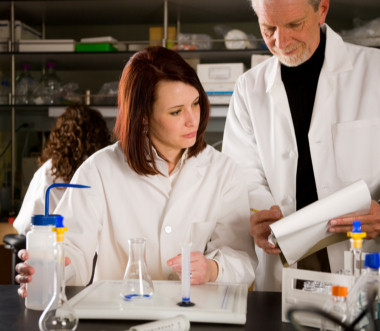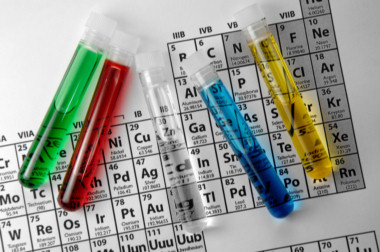









CORE WORDS
COMPOUND WORDS
agronomy | {n} | (science of utilizing plants, animals, and soils for food, fuel, feed and more) | appreciate | {v} | (to value highly) | assiduous | {adj} | (hard-working, diligent) | as you know | {adv} | (as you know) | boffin | {n} | (scientist or engineer) | comparative linguistics | {n} | (a branch of historical linguistics that is concerned with comparing languages) | compunction | {n} | (a pricking of conscience) | conscience | {n} | (moral sense) | conscientious | {adj} | (thorough, careful, or vigilant) | domain | {n} | (collection of information) | do you know | {phrase} | (do you know? (of knowledge)) | economics | {n} | (study) | economist | {n} | (expert in economics) | engineering | {n} | (application of science to the needs of humanity) | exact science | {n} | (field of science capable of quantitative expression) | finance | {n} | (science of management of money and other assets) | foreknowledge | {n} | (knowing beforehand) | friend with benefits | {n} | (friend with whom one has a casual sexual relationship) | general knowledge | {n} | (wide body of information that a person acquires from education and from life) | historical linguistics | {n} | (the scientific study of language change) | history | {n} | (branch of knowledge that studies the past) | humanities | {n} | (the branch of learning that includes the arts, classics, philosophy, intellectuality and history etc.) | I'd like to know | {phrase} | (phrase) | ignorance | {n} | (condition of being uninformed or uneducated) | ignorance is bliss | {proverb} | (Ignorance is bliss) | information science | {n} | (science) | I want to know | {phrase} | (I want to know) | keep someone in the dark | {v} | (to keep someone uninformed) | know | {v} | (be certain or sure about (something)) | know | {v} | (be informed about) | know | {v} | (have knowledge of) | know-how | {n} | (the knowledge and skill to be able to do something correctly) | knowingly | {adv} | (knowingly) | knowledge | {n} | (awareness, state of having been informed) | knowledge | {n} | (fact of knowing about something; understanding, familiarity with information) | knowledge is power | {proverb} | (knowledge is power) | linguist | {n} | (one who studies linguistics) | linguistic | {adj} | (Relating to linguistics) | linguistics | {n} | (scientific study of language) | #NAME? | {suffix} | (branch of learning) | mad scientist | {n} | (stock character in popular fiction) | media studies | {n} | (academic discipline) | musicologist | {n} | (one who studies musicology) | musicology | {n} | (study of music) | nanoscientist | {n} | (a scientist whose speciality is nanoscience) | natural science | {n} | (science involved in studying phenomena or laws of the physical world) | neuroscience | {n} | (scientific study of the nervous system) | nutritionist | {n} | (an expert or specialist in nutrition) | omniscience | {n} | (capacity to know everything) | omniscient | {adj} | (having total knowledge) | ornithologist | {n} | (expert in ornithology) | philosophy of science | {n} | (study of the assumptions, foundations, and implications of science) | political science | {n} | (study of politics) | political scientist | {n} | (political science expert) | popular science | {n} | (interpretation of science) | prisoner of conscience | {n} | (person) | pseudoscience | {n} | (purported science) | pseudoscientific | {adj} | (of, relating to, or employing pseudoscience) | public finance | {n} | (field of economics) | remorse | {n} | (feeling of regret or sadness for doing wrong or sinning) | scholasticism | {n} | (school of philosophy) | school of thought | {n} | (opinion subscribed to by some connected or arbitrary group) | science | {n} | (collective discipline of learning acquired through the scientific method) | science | {n} | (fact of knowing something) | science | {n} | (knowledge gained through study or practice) | science | {n} | (particular discipline or branch of learning) | scientific | {adj} | (of or having to do with science) | scientifically | {adv} | (from a scientific perspective) | scientifically | {adv} | (using science or methods of science) | scientificity | {n} | (quality or state of being scientific) | scientific method | {n} | (method of discovering knowledge) | scientist | {n} | (one whose activities make use of scientific method) | scrupulous | {adj} | (having principles) | scrutinize | {v} | (to examine with great care) | sexology | {n} | (The study of sex and sexuality) | silviculture | {n} | (forestry) | smattering | {n} | (superficial knowledge) | social science | {n} | (branch of science) | space science | {n} | (discipline concerned with phenomena occurring in space or space flight) | traductology | {n} | (study of theory and practice of translating and interpreting) | TTBOMK | {initialism} | (to one's knowledge) | unaware | {adj} | (not aware or informed) | unbeknownst | {adv} | (Without the knowledge of) | unconsciousness | {n} | (ignorance or innocence) | unscientific | {adj} | (Not scientific) | unwitting | {adj} | (unaware) | you never know | {phrase} | (phrase used to speculate about a slim chance)
5000 WORDS
| L008 16 P0153 | biết | wissen
|  |
知道 P0153
รู้ P0153
biết P0153
wissen P0153
to know P0153
saber P0153
sapere P0153
savoir P0153
PHRASES
지식은 독서를 통해 축적되어야 합니다.

Knowledge is accumulated by reading .
(ENG )
(KO )
(0362)
         
|
과학자들은 연구에 집중합니다.

The scientists concentrate on their experiments .
(ENG )
(KO )
(0905)
         
|
화학은 과학에 속합니다.

Chemistry is branch of the natural sciences .
(ENG )
(KO )
(0910)
         
|
그녀는 너무 바빠 무엇을 해야 할지 몰랐습니다.

She was too busy to know what to do .
(ENG )
(KO )
(2006)
         
|
지식은 인간 진보의 사다리입니다.

Knowledge is the staircase for the advancement of mankind .
(ENG )
(KO )
(2576)
         
|
공부하지 않으면 무지합니다.

Without studying , one will end up stupid and ignorant .
(ENG )
(KO )
(3288)
         
|
At your age you should know better . |
|
He pretends to know everything . |
Do you know how to use a personal computer ? |
If you have any questions , please let me know . |
What he says is true to some extent . |
Do you know what he said ? |
You should have known better . |
He has both experience and knowledge . |
Don't you know mr. Brown ? |
His methods are not scientific . |
It is surprising that he should not know this . |
It is impossible to know what will happen in the future . |
Do you know where the police station is ? |
Let me know when you'll return home . |
I get knowledge by reading books . |
The fact was of interest to the scientists . |
Few people know how to do it . |
All knowledge is not good . |
We know the value of good health when we are sick . |
He studied very hard to become a scientist . |
To some extent I agree with you . |
This is all I need to know . |
If you change your mind , let me know . |
She seems to know something important . |
He is a man of profound knowledge . |
You should know better . |
He is a scientist who is respected by everybody . |
Do you know when they will arrive ? |
Do you know who took the call ? |
I agree with you to a certain extent . |
Please tell me what you know about it . |
Few people know about the plan . |
Let's keep him in the dark until we know more . |
I agree with you to a degree . |
There are few men who don't know that . |
My child is curious to know everything . |
He has knowledge and experience as well . |
Do you know what has become of him ? |
I want to know about your country so much . |
At your age , you ought to know better . |
Let me know what you're up to . |
You should know it . |
Please let me know when we get there . |
Do you know what you're asking ? |
I want to know about this mountain . |
I am not such a fool but can appreciate it . |
He is backward in science . |
You know , I had a lot of fun . |
He has transferred all his knowledge to his son . |
I want to know the reason . |
How should I know ? |
That is what I want to know . |
If you change your mind , let me know . |
I'd like to know which he likes . |
It is one thing to know and another to teach . |
It has some bearing on this problem . |
He has a well of knowledge . |
He ran away from home without the knowledge of his parents . |
Please let me know when you come to osaka . |
A true scientist would not think like that . |
| | | | | | | | | | | | | | | | | | | | | | | | | | | | | | | | | | | | | | | | | | | | | | | | | | | | | | | | | | |













































































